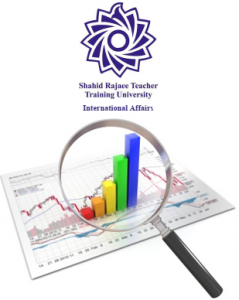
![]()
![]()
[add_eventon_list number_of_months=”3″ event_type=”15″]

Scientometrics is the field of study which concerns itself with measuring and analyzing scientific literature. Scientometrics is a sub-field of bibliometric. Major research issues include the measurement of the impact of research papers and academic journals, the understanding of scientific citations, and the use of such measurements in policy and management contexts. In practice there is a significant overlap between scientometrics and other scientific fields such as information systems, information science, science of science policy, sociology of science, and metascience. Critics have argued that over-reliance on scientometrics has created a system of perverse incentives, producing a publish or perish environment that leads to low quality research.
History of Scientometrics
Modern scientometrics is mostly based on the work of Derek J. de Solla Price and Eugene Garfield. The latter created the Science Citation Index and founded the Institute for Scientific Information which is heavily used for scientometric analysis. A dedicated academic journal, Scientometrics, was established in 1978. The industrialization of science increased the quantity of publications and research outcomes and the rise of the computers allowed effective analysis of this data. While the sociology of science focused on the behavior of scientists, scientometrics focused on the analysis of publications. Accordingly, scientometrics is also referred to as the scientific and empirical study of science and its outcomes.
Later, around the turn of the century, evaluation and ranking of scientists and institutions came more into the spotlights. Based on bibliometric analysis of scientific publications and citations, the Academic Ranking of World Universities (“Shanghai ranking”) was first published in 2004 by the Shanghai Jiao Tong University. Impact factors became an important tool to choose between different journals and the rankings such as the Academic Ranking of World Universities and the Times Higher Education World University Rankings (THE-ranking) became a leading indicator for the status of universities. The h-index became an important indicator of the productivity and impact of the work of a scientist. However, alternative author-level indicators have been proposed. Around the same time, interest of governments in evaluating research for the purpose of assessing the impact of science funding increased. As the investments in scientific research were included as part of the U.S. American Recovery and Reinvestment Act of 2009 (ARRA), a major economic stimulus package, programs like STAR METRICS were set up to assess if the positive impact on the economy would actually occur.
![]()
Tel: +98 (21) 22970029
Fax: +98 (21) 22970030
Mail: int.affairs@sru.ac.ir
![]()

Second University in Terms of International Affairs
![]()
Links

